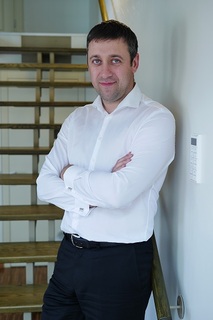According to the predictions of Gartner, a US technology research company, the number of things and devices connected to the internet and capable of exchanging information will have exceeded 26 billion by the year 2020. However, smooth communication between these devices and the possibility to connect them to one common wireless network, i.e., the internet of things, is prevented by the absence of consistent standards.
 According to the predictions of Gartner, a US technology research company, the number of things and devices connected to the internet and capable of exchanging information will have exceeded 26 billion by the year 2020. However, smooth communication between these devices and the possibility to connect them to one common wireless network, i.e., the internet of things, is prevented by the absence of consistent standards.
According to the predictions of Gartner, a US technology research company, the number of things and devices connected to the internet and capable of exchanging information will have exceeded 26 billion by the year 2020. However, smooth communication between these devices and the possibility to connect them to one common wireless network, i.e., the internet of things, is prevented by the absence of consistent standards.
The IT companies of the world are currently looking for solutions to this problem and ways to create common standards for the internet of things. For this purpose, the AllSeen Alliance consortium was founded at the beginning of 2014, with the Open Interconnect Consortium association announced midway through the year as well. The goal of these organisations is to create a wireless platform independent of device manufacturers, specifications and operating systems. The first task on the list is to propose standards for Smart House systems developers and manufacturers of domestic and office technology.
As Vaidas Janulis, head of the Intelligent Buildings Department at the Penki Kontinentai Communications Centre, states, specialists installing intelligent building systems obviously adhere to certain standards, but these standards have more to do with the technical implementation of a project. “The quality of work and smooth functioning of smart buildings is ensured by the KNX standard, recognised and applied throughout Europe and countries across the world. This is an international building automatisation and systems management standard that allows the implementation of complex technical solutions with a simple and intuitive system of control,” explains Mr. Janulis.
According to the specialist, general standards for the internet of things are necessary in order to create intelligent systems that connect physical objects into a single network. “Today, manufacturers can already offer clients heating and alarm systems, televisions and other devices that we, the installers of Smart House, connect to a general building network. However, integrating all of this equipment into one system requires a lot of time and effort. After all, these devices function on the basis of different operating systems, wireless technologies and software. If general standards were to be developed, smart devices – switches, thermostats, domestic appliances, lights, blinds, etc. – could communicate with each other and be controlled with a single device. Thus, every buyer to acquire a new refrigerator, washing machine, smart phone or any other type of electric device will be able to expect that this device will communicate and be compatible with the rest of the equipment that has already been installed in their smart house,” states Janulis.
As this specialist of intelligent buildings claims, common standards for the internet of things would also contribute to the security of user data on smart devices. “The emergence of the internet of things gives rise to the question of how to protect great amounts of personal information about users' consumption habits, behaviour, lifestyles and so on. This is why both manufacturers and responsible international institutions continue to address ever-growing concerns about the privacy and protection of information. The existence of a common framework of standards would allow all devices to be equipped with certain safety measures that would control their operation and development as well as integrate these measures with already existing international standards of security. Whatever the case may be, strict information security criteria are inevitable and an inextricable part of the internet of things,” maintains Janulis.
The standards developed by AllSeen Alliance and Open Interconnect Consortium will be distributed as open source software, thus, all manufacturers of smart devices and service providers will be able to use it.